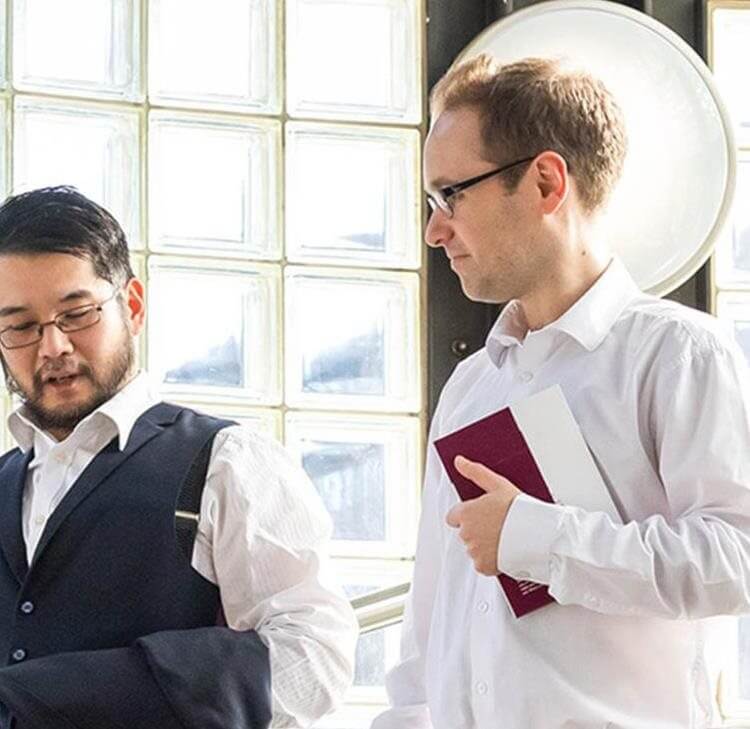There is often discussion of 'mutual wills' in the private client world, but it is extremely rare to see two prominent cases involving them reach the courts in such a short space of time. But between March and July of this year, that is precisely what we have seen.
What is a mutual will?
Firstly, an important point; the phrase 'mutual will' should not be confused with 'mirror will'. Mirror wills are common, and (as the name suggests) mirror one another. They are often used by married couples where, for instance, they both wish to leave everything to each other, or to their children in the event the testator’s spouse dies before them.
Mutual wills on the other hand are a very different animal. They are, in effect, a contract with the other person making a will. In that agreement you both agree you will not change (or revoke) your will at a later date, in return for the other person agreeing the same.
That binding nature of mutual wills flies in the face of the more usual situation, where a person is free to revoke their will as they choose, often by making a new one.
But what happens where one party to a pair of mutual wills makes a new will, or revokes their will at a later date? Or for that matter, what happens if a dispute arises at a later date as to whether or not the wills in question were actually intended to be truly mutual?
The principles
After a five day trial at the tail end of 2022, the court published it’s judgment in Naidoo v Barton in March 2023. The judgment includes comment on the following important legal principles as to the creation of mutual wills:
- The “contract” must be one that is enforceable at law i.e. it must comply with the usual rules for enforceability of contracts;
- The wills do not need to expressly say that the testators must not revoke their will - the agreement can be implied from evidence;
- The wills must be intended to be mutually binding on one another i.e. there must be an agreement from both parties not to change their will, not just from one person to the other;
- The binding agreement can be contained outside of the terms of the will; and
- The burden of proof must be discharged by the person claiming the wills are ‘mutual’.
In the facts of the case the court had little hesitation in holding the will in question to be 'mutual' in nature, especially given it (and the corresponding will of the other party) was expressed on its face to be mutual.
(In an interesting twist though, the court elected to set aside the will in question on the basis of undue influence by one of the Defendants, referencing as it did so the fact that the making of a mutual will is unusual, and therefore calls for a good explanation).
Court of Appeal
July 2023 saw the judgment of the Court of Appeal in the case of McLean v McLean.
The wills in that case were made by a solicitor, and his file note of his meeting with his two clients was quoted heavily in the judgment. The pertinent part of his note said:
“Clients said that they would like to appoint each other as their sole executor and trustee and for the surviving spouse to receive everything on the first spouse’s death.
On the second spouse’s death, clients would like the residuary estate to be divided equally between the 4 children.
I raised the issue that if Mr McLean were to pass away first, then there was no guarantee that Mrs McLean would not change her will and leave her entire estate to Brett [their son]. Mr McLean explained that he trusts his wife implicitly. They have been married for 45 years and there is no way that she would do this.”
At first glance that might seem like an agreement between the husband and wife, or at least something akin to an agreement; at least it suggests an understanding that Mr McLean was making his will to try and ensure his estate (ultimately) passed to his four children equally, and not only to Brett (his only child with Mrs McLean). Indeed, the solicitor who prepared the wills said in evidence that he recalled Mrs McLean saying during the meeting that she would not change her Will so as to disinherit any of the four children.
But, after careful analysis, the judge in the trial had decided this was not enough to create mutual wills. This was for two principal reasons:
- The mere “trust” Mr McLean was expressing in his wife was not enough to demonstrate a legally enforceable agreement between them. In fact, this was expressly different to an agreement. Mr McLean was in effect told by his solicitor this was not an agreement, and he replied to say he trusted his wife regardless.
- Even if Mrs McLean’s assurances did amount to an agreement on her part, there was no evidence at all that Mr McLean had done likewise and agreed not to revoke his will at a later date. As a result, there would have been no “mutual” element to the agreement.
The Court of Appeal had little trouble in upholding the decision of the trial judge, re-affirming that;
“What is required to establish mutual wills is a clear agreement……Expectation, or trust, is not enough. The evidence in this case established only trust”.
Key takeaways
Mutual wills can, in the right circumstances, be extremely useful. But great care needs to be taken to ensure that an intention to create legally binding mutual wills is effectively carried out, and also to ensure that any ambiguity over intention is avoided, so that expensive disputes in the future can hopefully be avoided.
Key contact

Daniel Edwards
Partner
daniel.edwards@brownejacobson.com
+44 (0)330 045 2533
You may be interested in...
Legal Update
Funeral arrangements dispute: Otitoju v Onwordi
Guide
Guide to funeral disputes
In Person Event
Exeter Private Sector Development Club June 2025
Guide
Construction of Wills: What happens if a clause appears ambiguous?
Guide
Rectification of a Will: What happens if a Will contains a mistake?
Legal Update
What happens when only a copy of a Will can be found?
Guide
Obtaining a Grant of Probate without a signed Will
Opinion
The Supreme Court provides welcome clarification on a problematic area of the law on adverse possession
Press Release - Firm news
Browne Jacobson adds bench strength to private client team
Press Release
Corporate sector: 2025 predictions
Legal Update
Rising tide of inheritance disputes: Understanding the surge in probate claims
Legal Update
Will challenges in 2024: Key cases on lack of capacity or lack of knowledge and approval
Legal Update
Two different will disputes address: When is a child not a child?
Legal Update
2024: The year as seen through the eyes of an inheritance and wills dispute solicitor
Legal Update
Autumn Budget 2024: Key changes for private clients
Press Release
Browne Jacobson’s private sector lawyers' reaction to the Autumn Budget 2024
Published Article
Family trust disputes: When is a child not a child?
Legal Update
On what grounds can you challenge a will?
Legal Update
How can you make a 'deathbed will'?
Guide
Challenging a will: What you need to know
Guide
Inheritance (Provision for Family and Dependants) Act 1975: Common questions
Press Release
Browne Jacobson appoints Scott McKittrick as Partner in growing Private Client team
Legal Update
Contentious private client roundup – 2023
Legal Update
Mutual wills – case update 2023
Press Release
Browne Jacobson grows inheritance and trust dispute practice with partner hire
Press Release - Firm news
Browne Jacobson's private client team top Chambers High Net Worth Guide rankings again
Browne Jacobson’s private client practice has been ranked as Band One in the 2022 Chambers and Partners High Net Worth Guide for its work in private wealth law.
Opinion - Future Lawyer blog
A day in the life of a private client and charities trainee
Gavin Lock gives a view into working for Browne Jacobson's private clients and charities team.
Opinion
A brief update on probate
A new online system for probate applications was introduced in early October 2019, which will allow us to process and track applications for grants of probate online.


























